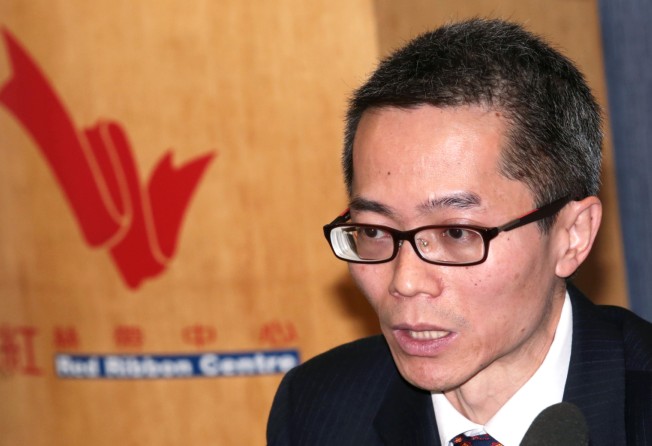
Number of reported HIV cases in Hong Kong increases 9pc
The 558 newly reported infections is highest annual figure ever, for third year running. Over half are the result of sexual contact between men

Some 559 new cases of HIV infections were reported in Hong Kong last year - the highest annual figure since the first case was diagnosed in 1984 and the third yearly set of record-breaking figures in a row.
The department's special preventive programme consultant Dr Wong Ka-hing said neighbouring regions like Shenzhen and Guangzhou and many Western counties were also seeing rising trends in HIV infection.
Watch: How an expat lives in Hong Kong…with HIV
"I won't say the problem is not serious in Hong Kong ... It is worrying," he said.
The number of new cases last year represented a 9 per cent increase on the 513 cases reported in 2012. It brought the total number of reported HIV cases in the city since 1984 to 6,342.
The proportion of all new cases which were the result of sexual contact between men was 53 per cent - the highest since the 1980s - despite the government's prevention efforts focused on targeting homosexual and bisexual men. Wong said the figures suggested a change in strategy may be necessary.
Of the remaining new cases, 25 per cent caught the virus through heterosexual contact and a small number by injecting drugs. Causes of 21 per cent of cases went undetermined.
Andrew Chidgey, chief executive of the non-government organisation Aids Concern, said many people with HIV had told him they had not understood the risks of unprotected sex. "People usually use condoms to avoid unwanted pregnancies but are unaware of the risks of sexually transmitted infections," he said.
He also observed that a lot of newly infected young men had not experienced the global impact of HIV in the 1980s and 1990s, when many people died. "The main issue is that too many gay men are not protecting themselves when having sex."
Wong, who said a community surveillance study would be conducted among homosexual men this year, said the rise may be partly due to an increase in testing. He called on at-risk populations - including homosexuals, sex workers and their clients, intravenous drug users, and partners of HIV-infected people - to go for tests every six to 12 months.
Without treatment to repress the virus, it is estimated that about half of those infected will go on to develop Aids in 10 years. For those who receive treatment, the risk of developing Aids is reduced by 90 per cent.
Aids is characterised by major clinical complications related to suppressed immunity, said Wong. The number of people in the city known to have developed Aids is 1,437, but a government spokesman said the number who had died was unknown.